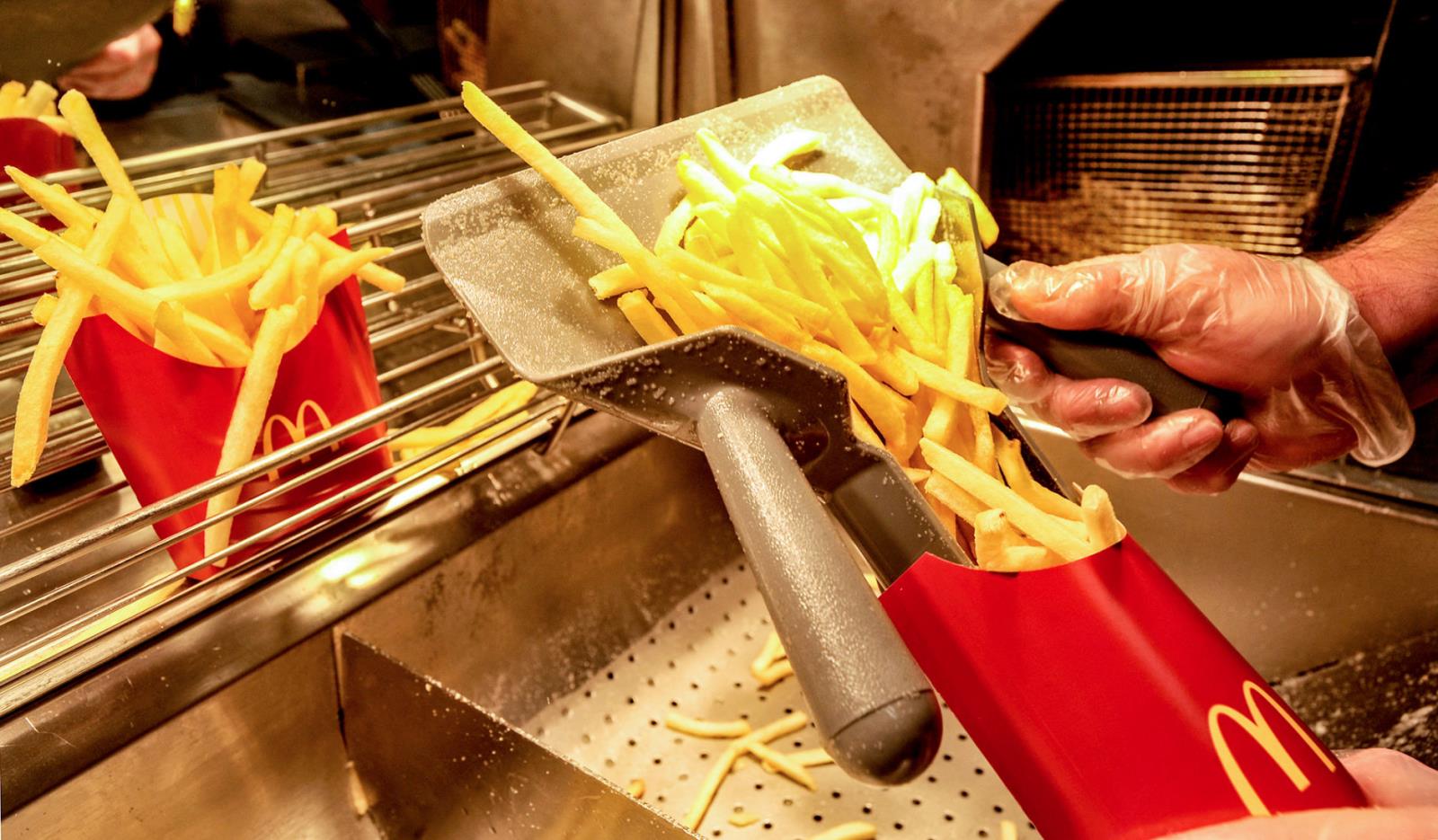McDonald's spent almost $136 million on Idaho ag products last year

By John O’Connell
Intermountain Farm & Ranch
McDonald’s Corp. spent nearly $136 million on Idaho agricultural commodities to supply its fast food restaurants during 2018, according to a recently released corporate report.
During the year, the Chicago-based fast-food giant purchased 271.285 million pounds of Idaho potatoes. McDonald’s also bought 58.3 million pounds of cheese, 14.9 million pounds of beef, 6.4 million pounds of sugar and 2.3 million pounds of onions from Idaho producers, according to the report.
“Each state has something to offer us,” said Lindsay Rainey, McDonald’s field brand reputation manager for the Pacific Northwest and Rocky Mountains.
Rainey recounted the gentleman’s agreement McDonald’s CEO Ray Kroc made in the 1960s with J.R. Simplot to be the restaurant chain’s frozen fry supplier. Today, J.R. Simplot Co. remains the major supplier of McDonald’s fries and a central player in the Idaho agricultural economy.
“The story with Simplot and Idaho is one we shouldn’t ignore — the handshake deal they had,” Rainey said.
Officials with Simplot estimate about a third of their global potato production goes to supply McDonald's. Simplot spokesman Josh Jordan said Idaho's volcanic, nutrient-rich and sandy soil and moderate temperatures is ideal for high-quality potato production
"Special care is taken to select high-quality potatoes to McDonald's fries, as per McDonald's own global quality specifications," Jordan said via email. "Potatoes with the correct attributes such as solids, size, color and defects are specifically used in the production of Mac fries, driving toward what McDonald's and Simplot refer to as Gold Standard Quality."
Travis Blacker, industry relations director with the Idaho Potato Commission, who works from Idaho Falls, said his organization commissioned a study that concluded Idaho would be the best location for potato processing companies to build their next expansion or plant.
Furthermore, he said the IPC invests $1 million per year in research to help growers raise the “best potatoes in the world.”
“I think McDonald’s sees the value in Idaho, and they see how seriously we take growing potatoes in Idaho,” Blacker said. “We’re an ag-friendly state, when more and more states are restricting agricultural practices.”
Blacker recounted a time when Idaho Gov. Brad Little stopped by the IPC office just to chat about the potato industry. Little, who is an Idaho farmer and rancher, has made it a point of emphasis to support the state’s food producers and food processors.
“For more than 60 years, the J.R. Simplot Co. has been dedicated to providing a safe and quality source of potatoes to McDonald’s,” Little said in a press release. “Idaho is proud to lead the nation in potato production, and we will continue to leverage our agricultural leadership to drive responsible and innovative ways to feed a growing population.”
McDonald’s has more than 14,000 U.S. restaurants. Due to its purchasing power, the company’s menu choices and practices can significantly impact food industries.
New potato varieties, for example, may offer promising new agronomic traits but still see little commercial planting until they’re accepted by McDonald’s, based on a rigorous quality assessment.
A few years ago, the short list of approved McDonald’s potato varieties was expanded to include Clearwater Russet and Blazer Russet, which were both developed by a collaborative public breeding effort in the Pacific Northwest.
McDonald’s also accepts Russet Burbank, Ranger Russet, Umatilla Russet, Shepody and Ivory Russet.
The company's demand for more than 58 million pounds of Idaho cheese is also significant for the state's economy, said Rick Naerebout, executive director of the Idaho Dairyman's Association.
"That's a lot of cheese," Naerebout said. "They've been a great partner for dairy."
Naerebout said Dairy Management Inc., which is the dairy industry's national promotional organization, has experts on staff who develop and share ideas for menu items involving dairy for McDonald's to use. He said McDonald's has a great track record of implementing some of those ideas.
According to a McDonald’s press release, the company’s standards have also significantly influenced farming and animal welfare practices. For example, the company is committed to cage-free eggs and beef with reduced usage of antibiotics of importance to human medicine.
“Given our scale, every change McDonald’s makes has the potential for a big impact,” the press release reads. “That’s why the McDonald’s system is proud to partner with agriculture to continuously evolve our best practices, continuously evolve our food and work towards our sustainability commitments.”
Still can't find what you are looking for? Find by topic:
- County Presidents & Board Information
- County Resource Page
- Delegate Form
- Discount Programs
- Discussion Meet
- Discussion Meet - High School
- Education Programs
- Events
- Excellence Award (YF&R)
- Expense Voucher
- Flickr- Photos
- Gem State Producer
- High School Discussion Meet
- High School Speech Contest
- Hope in Idaho Ag
- House of Delegates Credentials Form
- IFBF Board of Directors
- IFBF Staff
- Insurance
- Issue Advisory
- Legislative Action Program
- Legislative Issues
- Library
- MAC Trailer
- Magazines
- Map My Benefits
- Member Benefits
- Member Discount
- Membership Application
- Mental Health Resources
- Mission Statement
- Moving Agriculture to the Classroom
- Newsletter Sign up
- News Releases
- News Room
- Open Range Law
- Photo Contest
Thank You to Our Partners









